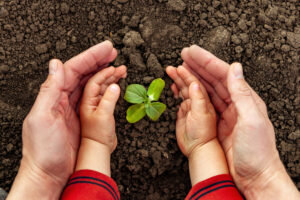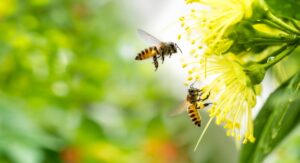
Allotments are more than just patches of land, they are places where people, nature, and community flourish. That’s what National Allotment week is all about.
Local allotments have become more popular in recent years. They are not only a fun way to spend time outdoors during the warmer months or a space to grow a few plants and veg. Allotments play a much bigger role than many people realise.
That’s why National Allotment Week was established but in 2002 by the National Allotment Society. The campaign runs every year, this time from the 11 to 17 August, and it continues to raise awareness, educate, and inspire people to get involved.
What Is An Allotment
An allotment is a small plot of land rented out, usually by the local council or by a gardening society. It is a green space where people can enjoy gardening, from growing fruit and vegetables, to planting flowers, or even sometimes keeping animals such as chickens.
These spaces bring big benefits to individuals, families, communities, and our environment.
Allotments and Wellbeing
 Wellbeing is a broad word, but it sums up all the good things that come from owning and maintaining an allotment.
Wellbeing is a broad word, but it sums up all the good things that come from owning and maintaining an allotment.
Spending time in green spaces improves both physical and mental health. Gardening outdoors can ease stress and anxiety, replacing them with a sense relaxation and tranquillity. Allotments also create community spirit, bringing people together to make connections, share skills and support each other.
A great example of this, is the Blackhill and Consett Community Garden, which has grown into a safe and welcoming space where the community and environment can thrive.
Nature And The Environment
 Allotments don’t just help people; they help wildlife too. Britain is one of the most nature depleted countries in Europe, so green spaces like these are essential. They provide safe habitats for pollinators such as bees, butterflies, and hoverflies. In return, these pollinators help allotments flourish.
Allotments don’t just help people; they help wildlife too. Britain is one of the most nature depleted countries in Europe, so green spaces like these are essential. They provide safe habitats for pollinators such as bees, butterflies, and hoverflies. In return, these pollinators help allotments flourish.
 Growing your own food also supports a healthier diet and reduces costs. Home grown fruit and vegetables cut down on processed meals and packaging waste. By avoiding pesticides, you’re protecting your own health and safeguarding and local wildlife.
Growing your own food also supports a healthier diet and reduces costs. Home grown fruit and vegetables cut down on processed meals and packaging waste. By avoiding pesticides, you’re protecting your own health and safeguarding and local wildlife.
And of course, allotments benefit the environment. Even a small garden helps by soaking up rainwater to reduce flood risk, locking carbon in soil, and cutting food miles by reducing the distance food travels to your plate.
Getting Involved – No Allotment Needed!
 Allotments can be a fun and rewarding hobby for individuals and families. In recent years, the demand for plots has risen as more people see the health, social, and financial benefits. If this is something that you’re interested in, you can find out more and apply for an allotment through the Durham County Council website.
Allotments can be a fun and rewarding hobby for individuals and families. In recent years, the demand for plots has risen as more people see the health, social, and financial benefits. If this is something that you’re interested in, you can find out more and apply for an allotment through the Durham County Council website.
But you don’t need an allotment to make a difference. You can create a green space in your garden, yard, or windowsills with a few pots and a selection of your favourite plants, herbs, fruits, and veggies.
Why National Allotment Week Matters
National Allotment Week is more than just a celebration of gardening. It is a reminder that small, local actions can make a big impact. Whether you’re growing your own food, supporting pollinators, or simply enjoying spending time in nature, allotments are a powerful way to improve our wellbeing and protect our environment.
We would love to hear from you.
Share your stories, experiences, and photos of nature, and send us a few lines on how you are helping protect our environment in County Durham. Whether it is something you do personally, a community project you may be involved in, a business change or action, or even a great photo of nature. We want to celebrate and share your efforts and views.
Send us your stories or photos (with a short explanation) by emailing climatecountydurham@durham.gov.uk or by filling in our “Get in Touch” form and help inspire others across our beautiful county to take action. And don’t forget to sign up to our Climate Change and Carbon Reduction Pledge.

